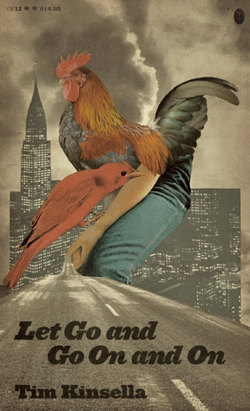Читать книгу Let Go and Go On and On - Tim Kinsella - Страница 4
На сайте Литреса книга снята с продажи.
Оглавлениеforeword
It is well known that at the 1973 Academy Awards, Marlon Brando, protesting Hollywood’s depiction of Native Americans, sent an actress dressed as an Apache to decline his Best Actor Award.
It is less well remembered, however, that later in the night, Clint Eastwood jokingly refused to present the Best Picture Award “on behalf of all the cowboys who have gotten shot in John Ford Westerns.”
This was after Easy Rider and before Star Wars, but still the Nixon years.
Brando’s truant activism had a twinge of poetic obscurity.
But with his cavalier remark, Dirty Harry reinstated the norm: the movies just entertainment, free from ideology.
*
Before its release, the screenplay of Two-Lane Blacktop was published in full in Esquire, with the headline “The Movie of the Year.”
Rolling Stone published a story about the making of the film.
And when completed, it was reputed to be the head of Universal’s least favorite movie ever made.
Until becoming available as a Criterion Collection DVD in 2007, the film survived obscurely on VHS, often bootlegged and traded, handed over as if granting initiation into a select cult.
After the commercial failure of Two-Lane Blacktop, its director Monte Hellman next found work back in the B-movie market where he had come up.
Cockfighter was a Roger Corman production, cranked out quick and cheap for drive-ins.
Just as he had in Two-Lane Blacktop, in Cockfighter Hellman dealt with quiet, obsession, subculture, and definitions of masculinity.
As of this writing, Cockfighter is available on DVD only as a double feature with an exploitation film about an erotic women’s prison.
*
Annie Hall won the Academy Award for Best Picture.
It also introduced the phrase “visible panty line” into the American lexicon, and also the concept of considering a relationship as a shark.
Bad Timing, directed by Nicolas Roeg, won The London Film Critic Circle’s Award for Best Director.
One of the executives at its UK distributor called it “a sick film made by sick people for sick people.”
The distributor’s logo was removed from all UK prints of the film.
With Performance, Walkabout, and Don’t Look Now, Roeg had already proven himself to be an innovative director with a bias for fractured mosaic structures.
And though his approaches differed significantly from Hellman’s, Roeg also crafted layered and complex films that sought to investigate alienation, obsession, subculture, and definitions of masculinity.
*
Laurie Bird, a principal actress in Two-Lane Blacktop and Cockfighter, had a small role in Annie Hall, playing Paul Simon’s girlfriend.
Later, she was engaged to marry Art Garfunkel.
She committed suicide in their New York penthouse at the age of twenty-five, while he was on location in Vienna shooting Bad Timing, a film which ironically mimics her own tragedy.
Very little is known about her.
Very little remains besides her films.
There are some clues in Garfunkel’s book of poems Stillwater, which is dedicated to her.
There are some screen tests for Two-Lane Blacktop, and a couple of her stoned journal entries.
But mostly there are holes and mysteries.
Through a thread of films spanning the 1970s, Bird represents the domestication of a Dionysian ideal: a beautiful androgynous hitchhiker settling down into the role of a politely gendered wife, and rewarded with upward social mobility for doing so.
But ultimately, one archetypical role defined her legacy: the tragic starlet.
*
This book by no means intends to convey any truth beyond one possible solution to the puzzles of her life and work.
It gleefully plays dumb to the simple facts of life on earth, proper sampling etiquettes, and the philosophical constraints of both freewill and predetermination.
I humbly appropriate the works of Hellman and Roeg as elements of my own.
Their daringness and trust in their audience inspired me as a young man, and guided my work here.
*
